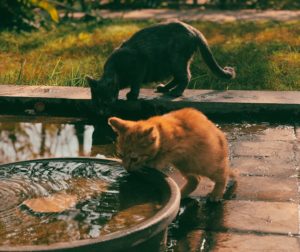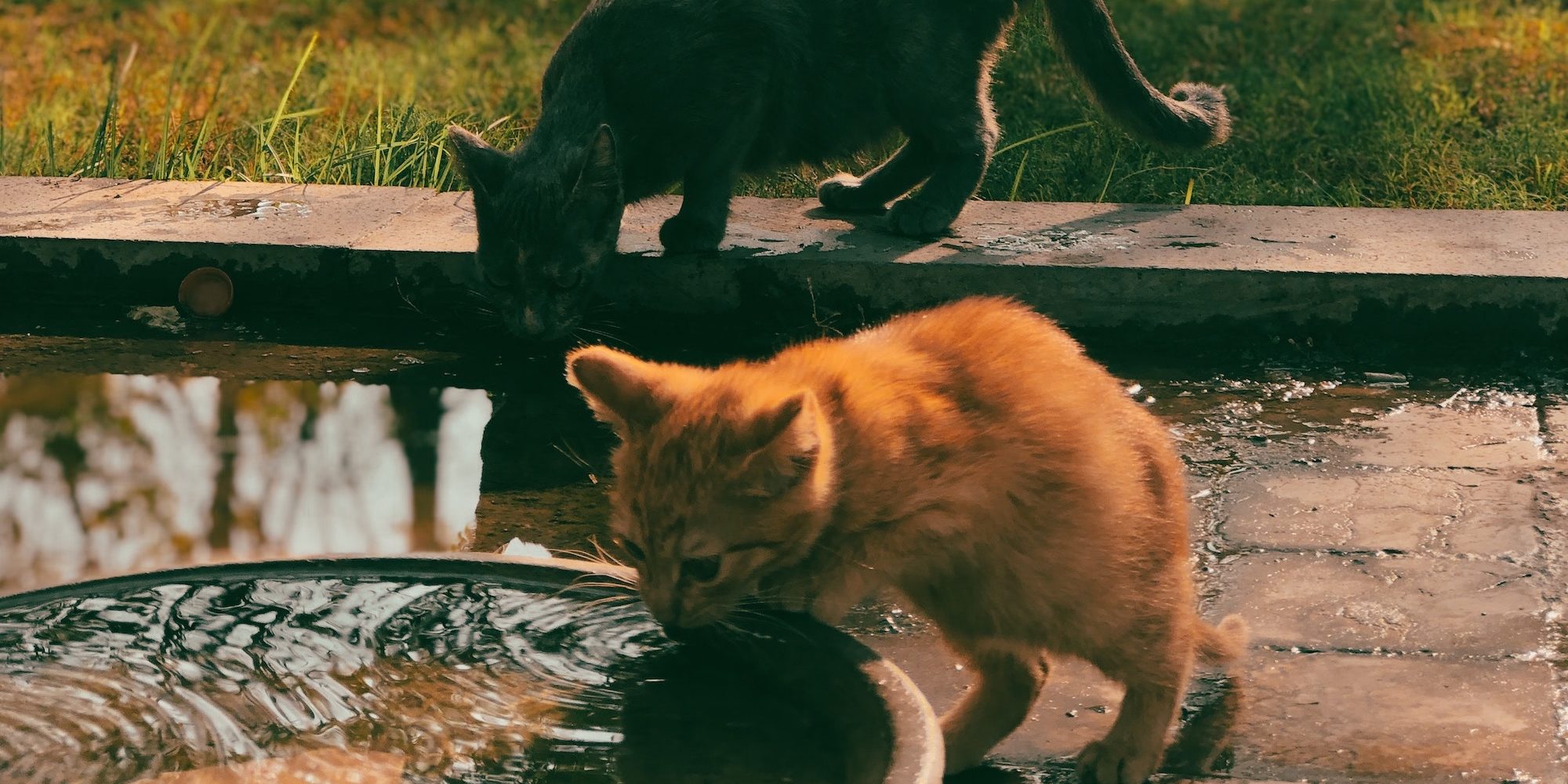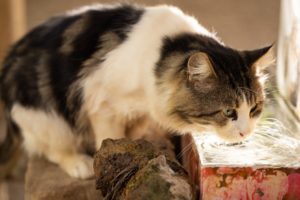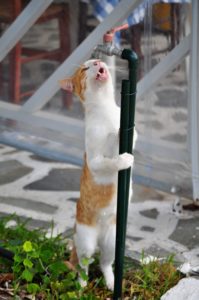Cats and water – a complex relationship!
You have heard it said many times before: cats do not like getting wet! For the most part, this statement is true. Playing in the rain or jumping in the pool are not activities usually associated with our feline friends. But what has caused this aversion to water? Well, research points to a few possible answers, and they are all quite fascinating!
1. The ancestor explanation
The ancestor of our domestic cats is the North African/Southwest Asian wildcat, Felis silvestris lybica. Northern Africa is home to the Saharan desert and one of the driest regions on Earth. For that reason, the African wildcats were used to scarce water sources. They often had to search for drinking water and were only rarely exposed to rain, lakes, and rivers. Such water sources were alien to them, and unfamiliar territory triggers fear, caution, and avoidance behavior in most animals. Today’s domestic cats have regular encounters with rain and other types of water, but it has not changed the fact that the ancestral reluctance of the African wildcat lives on inside them.
2. The speed explanation
Cats are both hunter and prey. They hunt birds, insects, and small rodents, but they also fall prey to wolves, coyotes, and other larger wild animals. To be an expert hunter and escape artist wrapped up in one, cats must be able to run fast. You probably know from walking home in the rain that drenched clothes make you move slower. The same is true for a cat’s coat. If cats get soaked, the coat will trap the water and weigh them down. In other words, a water-logged coat deprives them of the freedom to strike when prey appears and escape if danger arises. A wet coat can also take a while to dry, causing the cat to feel cold and uncomfortable.
3. The grooming explanation
Cats are meticulous self-groomers and spend 30 to 50 percent of their waking hours carefully grooming themselves. If the coat gets wet, all their hard work will be wasted, and they will have to start over. That takes time away from other important activities, such as eating, playing, and napping. In cases where your cat has become soiled or infested with flees, however, a bath is still necessary to help with the grooming process.
Cats and running water – a slightly different story!
After reading the above, you might be asking yourself the following question: If cats dislike water so much, why will they stick a paw into a running faucet, drink from it, or prefer a pet water fountain over a regular water bowl? There are two explanations for this behavior:
1. The prey explanation
Cats are natural hunters and find the sound, movement, and reflection of running water intriguing. Just like a rattling toy can attract their attention and make them think prey is near, so can a running faucet. It simply activates the cat’s prey drive and desire to hunt.
2. The survival explanation
All cats (domestic and wild) instinctually prefer running water over still water. In the wild, running water such as streams and springs are safer to drink from than puddles and other still water sources. Running water is more likely to be fresh and uncontaminated by plant debris and bacteria. Therefore, it is safer for them to drink from streams and springs if they want to survive. In a domestic environment, giving cats access to a pet fountain can increase their water intake significantly.
Not all cats are created equal!

Even though most domestic cats share the dislike of water described above, there are exceptions. In fact, we have cats that revel in the water. These felines share an appreciation of cool baths with wildcats such as the tiger and the jaguar. Examples of cat breeds in this group include the Norwegian Forest Cat, the Maine Coon, Bengal cats, and the Abyssinian cat. Among domestic cats, however, the prize for the most enthusiastic water lover must go to the Turkish Van, also known as “the swimming cat.” The ancestors of the Turkish Van had migrated to the Lake Van region of Turkey, so just like the tiger, they were used to swimming in lakes to cool off during the hot summer months. This has not only given the Van a profound love of water but also a water-resistant coat that is more conducive to swimming than regular cat coats.
In conclusion, the common belief that cats prefer land to water is mostly—but not entirely—true. Running water piques their curiosity, triggers their hunting instinct, and often causes them to drink more. Some cats are even natural-born swimmers. As is the case with most things feline, personality is everything, and it is not surprising if you know a cat with water habits so unique, they defy science altogether!





